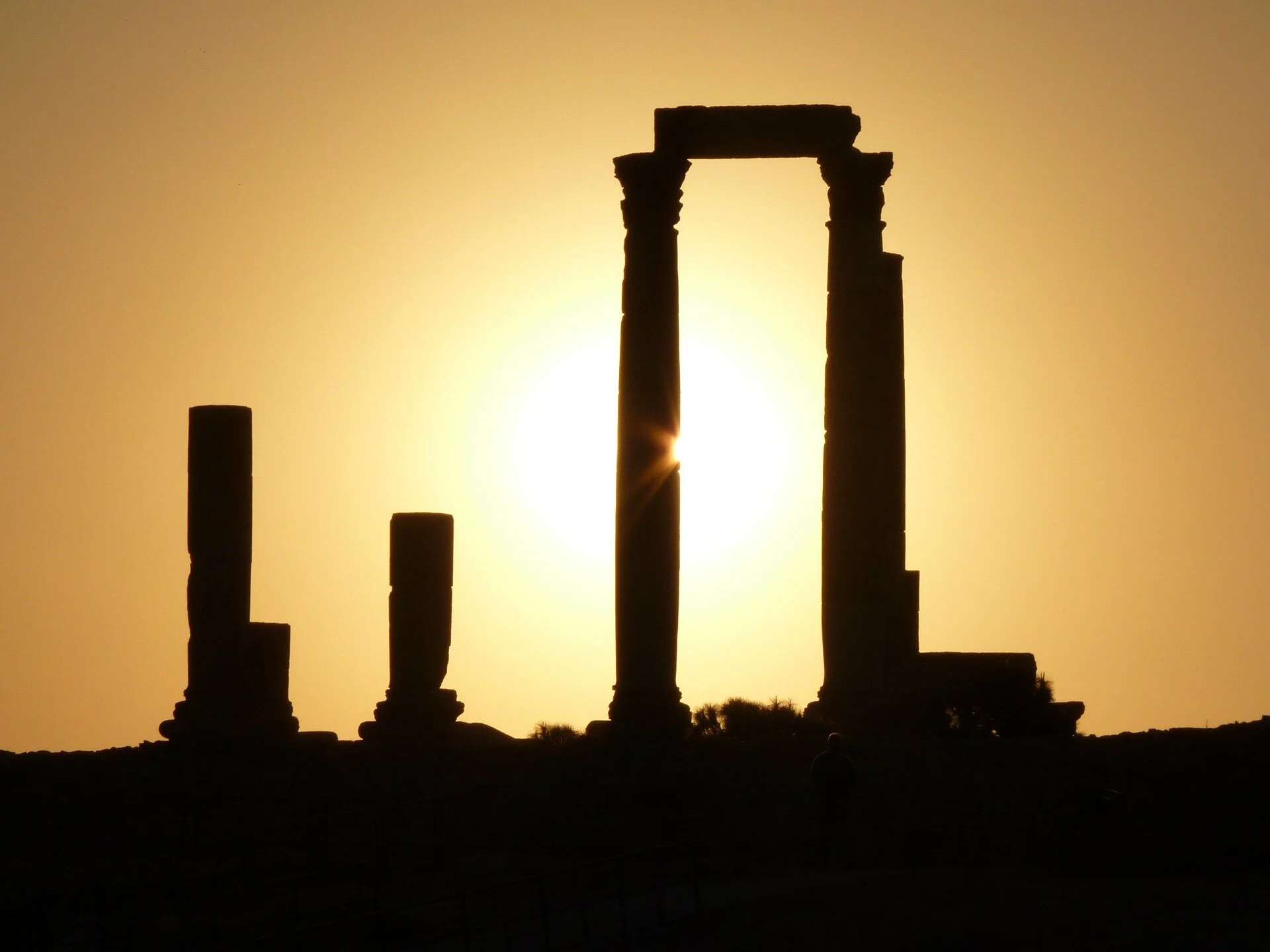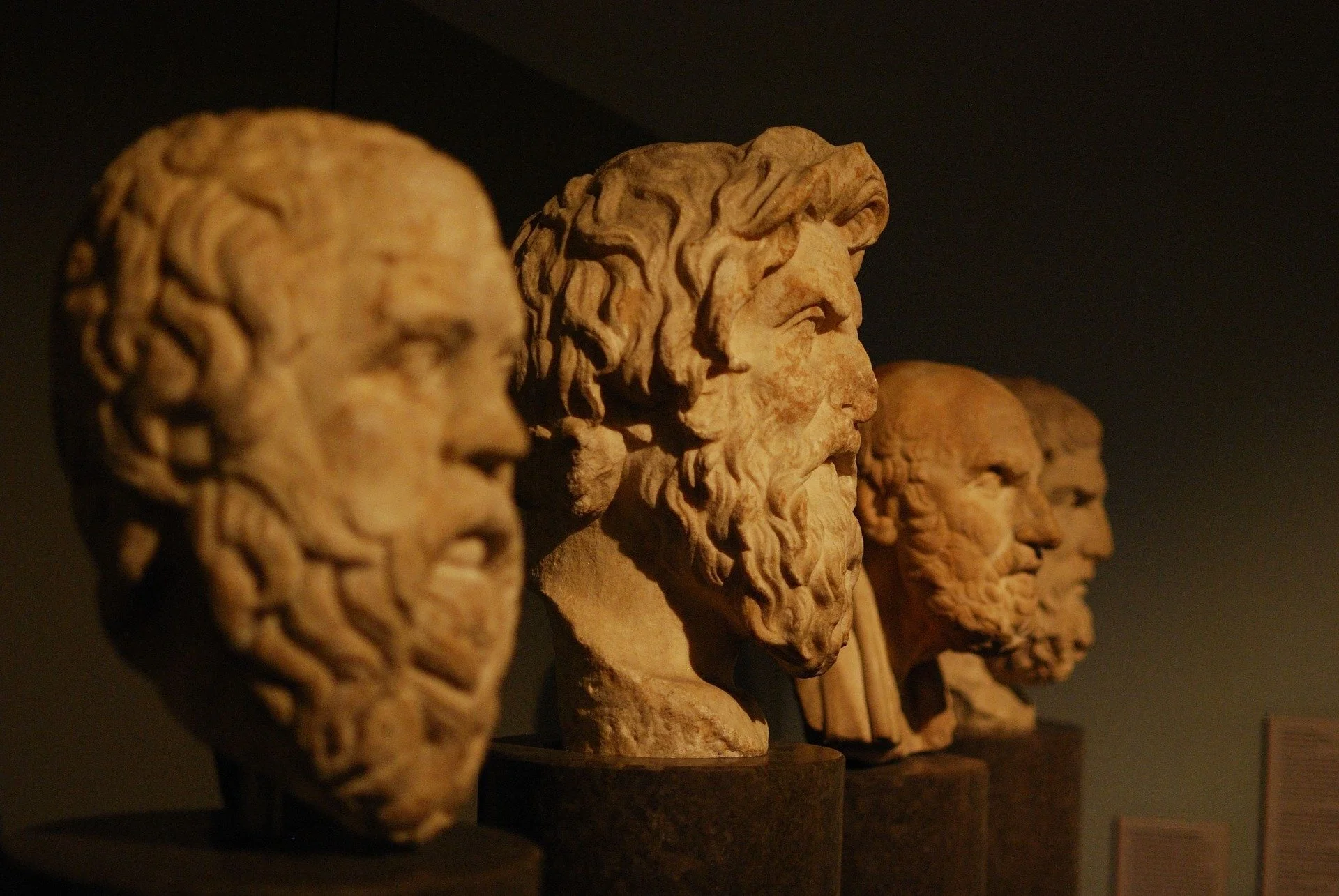Keeping the Humanities Alive in the 21st-Century Digital Dark Ages
For some time now, I have begun viewing my own teaching and writing in a monastic, or perhaps a scholastic way, fighting to keep the humanities alive in the digital dark ages of the 21st-century, like a Medieval monk diligently copying some decaying ancient manuscript before it’s lost forever. I feel this way about our intellectual and cultural heritage in the Western world, that it is in dander of being lost to the illiteracy and pragmatism of our present age.
In the Medieval time period, many of the great works and achievements of the ancient world were not necessarily lost but rather forgotten about culturally. The vast majority of people, even educated people, didn’t read Plato or Aristotle, Cicero or Seneca, as a matter of course. Although some ancient works were, in fact, lost, many of these ancient works were preserved by Medieval and Arab scholars who preserved, copied, and translated these ancient works so that they would not be forgotten in the cultural darkness they saw growing around them.
Many of these works were rediscovered in the overlapping movements now known as the “Enlightenment” and the “Renaissance,” which consisted not only a return to human rationality for its own sake (by philosophers such as René Descartes) but also a rediscovery of the great achievements of the classical age of Greek and Roman philosophy and culture. The founding fathers of the United States of America drew as much on the ancient Greeks and Romans as they did on Enlightenment political philosophers like John Locke for their vision of a “more perfect union.”
I fear, however, that we are losing touch with our philosophical, intellectual, and cultural heritage in the Western world, especially in these practical, data-driven times, which I lump in with the “digital dark ages,” as I called our time above. The great works of Western philosophy are seldom read, even by philosophy students in many Introduction to Philosophy classes in the United States and elsewhere in the Western world, in favor of more “relevant” issues in social and political philosophy. And the greatest works of Western literature, such as The Iliad and The Odyssey by Homer, The Aeneid by Virgil, The Divine Comedy by Dante Alighieri, even the greatest works of English literature, whether by William Shakespeare or by Ernest Hemingway, are no longer read, from high school through college. It’s no wonder that the end result has been a general lack of awareness of the possible achievements of humankind when students are no longer presented with a high vision of what those achievements have been in the past, or with aspirations of what our future achievements might yet be.
One could argue that every generation laments the cultural decline observed in the generations to follow. Even the ancient Romans were concerned about the decline of their culture. They even had an expression for it, likely first coined by the Roman stateman and orator Cicero:
O tempora! O mores! (Oh, the times! Oh, the customs!) (Cicero)
Cicero coined the Latin phrase “O tempora! O mores!” (Oh, the times! Oh, the customs!) to express the decline of Ancient Roman culture.
And already in the mid-19th century Henry David Thoreau was lamenting the growing illiteracy of the modern world encroaching on his own cultural enclave of one around Walden Pond:
The best books are not read even by those who are called good readers. What does our Concord culture amount to? There is in this town, with a very few exceptions, no taste for the best or for very good books even in English literature, whose words all can read and spell. Even the college-bred and so called liberally educated men here and elsewhere have really little or no acquaintance with the English classics; and as for the recorded wisdom of mankind, the ancient classics and Bibles, which are accessible to all who will know of them, there are the feeblest efforts any where made to become acquainted with them. I know a woodchopper, of middle age, who takes a French paper, not for news as he says, for he is above that, but to “keep himself in practice,” he being a Canadian by birth; and when I ask him what he considers the best thing he can do in this world, he says, beside this, to keep up and add to his English. This is about as much as the college bred generally do or aspire to do, and they take an English paper for the purpose. One who has just come from reading perhaps one of the best English books will find how many with whom he can converse about it? Or suppose he comes from reading a Greek or Latin classic in the original, whose praises are familiar even to the so called illiterate; he will find nobody at all to speak to, but must keep silence about it. Indeed, there is hardly the professor in our colleges, who, if he has mastered the difficulties of the language, has proportionally mastered the difficulties of the wit and poetry of a Greek poet, and has any sympathy to impart to the alert and heroic reader; and as for the sacred Scriptures, or Bibles of mankind, who in this town can tell me even their titles? Most men do not know that any nation but the Hebrews have had a scripture. A man, any man, will go considerably out of his way to pick up a silver dollar; but here are golden words, which the wisest men of antiquity have uttered, and whose worth the wise of every succeeding age have assured us of;—and yet we learn to read only as far as Easy Reading, the primers and class-books, and when we leave school, the “Little Reading,” and story books, which are for boys and beginners; and our reading, our conversation and thinking, are all on a very low level, worthy only of pygmies and manikins.
I aspire to be acquainted with wiser men than this our Concord soil has produced, whose names are hardly known here. Or shall I hear the name of Plato and never read his book? As if Plato were my townsman and I never saw him,—my next neighbor and I never heard him speak or attended to the wisdom of his words. But how actually is it? His Dialogues, which contain what was immortal in him, lie on the next shelf, and yet I never read them. We are underbred and low-lived and illiterate; and in this respect I confess I do not make any very broad distinction between the illiterateness of my townsman who cannot read at all, and the illiterateness of him who has learned to read only what is for children and feeble intellects. We should be as good as the worthies of antiquity, but partly by first knowing how good they were. We are a race of tit-men, and soar but little higher in our intellectual flights than the columns of the daily paper. (Thoreau, Walden; Or, Life in the Woods, Reading)
I yearn to be a Socrates, a Plato, or an Aristotle—even a Descartes, a Kant, or a Nietzsche—one of the shining beacons and sparkling towers of Western thought. But instead I find myself hunched over in the darkness both literal and cultural like a Medieval scholastic trying merely to keep the dimming torches, the last remnants of our culture and the lingering glow of Western philosophy, from being extinguished altogether.
So I teach, I write, I blog, I podcast, I dwell on and talk about the great achievements of Classical and Enlightenment Western culture to anyone who will listen, in hopes that someone greater than I will once again drag the world from the darkness into the light, like Virgil and Beatrice leading Dante through Hell and Purgatory and onward into Paradise, or like the protagonist philosopher in Plato’s Allegory of the Cave (and Socrates in real life!) helping his fellow prisoners break free of their chains and shadowy illusions by dragging them kicking and screaming into the sunlight outside. I seem to be the maintainer of torches, a bearer of sunlight by proxy only, inspired by the past and even more inspired by my hope and vision for the future achievements of mankind.
Plato’s Allegory of the Cave (Republic, Book VII)
If I am destined to live in the dark ages between past and future, perhaps I can at least do my part to bridge the gap from the glory of the past to the brightness of all the future philosophy and human achievements yet to come. But, like so many medieval monks and scribes, to whom we owe a great but anonymous debt, I myself am likely destined to be forgotten, for we remember only the brightest rays of sunshine and the best of human thought, not the forgotten souls who toiled away to make sure those shining stars were not and are not lost in the darkness and the illiteracy of the masses.
Perhaps as a philosophy instructor I’ll even have the chance to teach some student who will go on to teach some student who will teach some other student, in turn, who will go on to achieve something great, such as the way Socrates taught Plato, who taught Aristotle, who then taught Alexander the Great. I would settle for being a mere link in the chain of philosophy, a “footnote in the history of philosophy,” as I phrased it in a previous post:
I long for greatness, to make a substantive contribution to the history of philosophy. If I have to, however, I will settle for keeping philosophy, the humanities, and the idealistic vision of Western culture in general, alive for the next generation, in (perhaps) vain hope that my students, and their students in turn, will do something even greater with the legacy I handed over to them for posterity and for their care, like an Olympic runner passing the torch to be carried on to its final destination far in the distance. I may not be able to climb Mount Olympus, but I can run, and I can carry the dual torches of the Classical Age and the Enlightenment for a while, making sure they doesn’t burn out in rough winds I encounter during my own brief day in the sun.
Perhaps some future philosopher, as Nietzsche might have called him or her, will one day record that they were taught by a teacher, who was taught by a teacher, who was taught by yet another teacher, who was once taught by Zachary Fruhling. If that is to be my own legacy as a philosopher, being born into the dark times in which I was born and doing my part to keep the humanities and humanism alive, I can live with that forgotten legacy for the sake of the human greatness still to come.
Do yourself and your students a favor. Read the classics and the greatest works of Western philosophy and Western literature, and make your students do the same. More importantly, however, make sure they understand the desire for greatness and the humanistic vision of what humankind can achieve, not just our past achievements, but the achievements our future students and the future goals our literal and cultural descendents can accomplish when they put their minds to it, whether it’s a mission to Mars, solving some seemingly intractable problem in the history of philosophy, or writing the great American novel of the 21st century and beyond. Show them not just how to live out their own short lives and careers, but to live for the ages and to press on with the belief that all things are possible, for themselves and for all mankind.
For Further Reading:
O Tempora! O Mores! Cicero’s Catilinarian Orations by Susan O. Shapiro
Walden; Or, Life in the Woods by Henry David Thoreau













